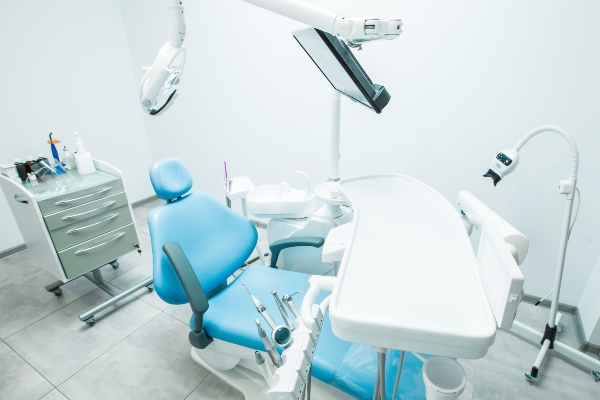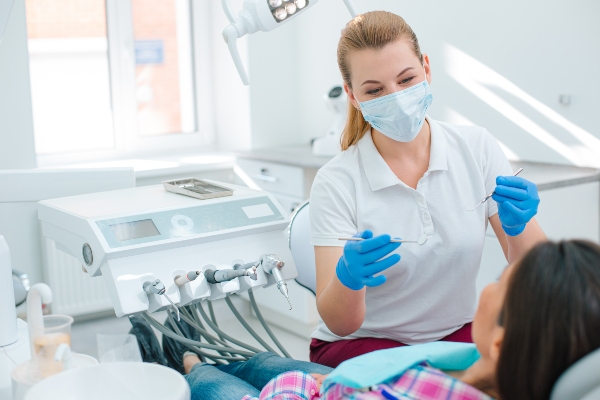 Getting new dentures can be a simultaneously exciting and daunting process. Although adjusting to new dentures takes some time and work, patients can immediately begin to enjoy the positive results of a full smile and a more rounded-out face. However, some aspects of adjustment may require a bit more practice. Chewing becomes somewhat different with dentures and may feel slightly unusual at first. Following these guidelines can help denture wearers adapt sooner.
Getting new dentures can be a simultaneously exciting and daunting process. Although adjusting to new dentures takes some time and work, patients can immediately begin to enjoy the positive results of a full smile and a more rounded-out face. However, some aspects of adjustment may require a bit more practice. Chewing becomes somewhat different with dentures and may feel slightly unusual at first. Following these guidelines can help denture wearers adapt sooner.
Chewing with dentures
One of the first things a patient with new dentures should keep in mind is to be forgiving of themselves. Adjusting to new dentures can take a while, and it is good to gradually introduce new foods to avoid frustration. Right after first receiving the dentures, it may help to stick to very soft foods and liquids since the gums may be tender and subject to irritation.
Normal foods
Once the tenderness has started to fade, more solid foods can be added to the diet. It is still a good idea to start with softer items before moving to anything tough. Taking very small bites can keep things more manageable and is good practice before moving up to larger bites.
Chewing with dentures is a very different experience than the patient may be used to. In order to keep the dentures balanced in the mouth and avoid popping them out, the food should be as evenly distributed as possible on both sides of the jaw. It is important to chew slowly while learning in order to get a feel for how the dentures fit and move in the mouth.
Difficult foods
Some foods may be harder to chew with dentures than others. Very sticky or chewy foods can be challenging to master and may cause frustration for those who are learning.
The good news is that almost all types of food can be enjoyed with dentures; however, it is often helpful to substitute or change cooking methods for tough foods so they become softer. For example, braising firm meats at low temperatures with liquid in a covered pot can make them easier to chew.
Always make sure to clean the dentures after eating anything that sticks to the appliance.
Obtaining denture adjustments
While some movement and shifting of dentures during eating are normal, adjustments may be needed if difficulty keeping the dentures in the mouth results. Be sure to consult a dentist if the problem persists.
Regular visits to the dentist can ensure the dentures continue to fit properly. Just as a person with a full set of teeth should visit the dentist twice a year, individuals with dentures still require regular checkups. While adjusting to new dentures, more frequent appointments may be needed depending on what the dentist recommends.
Conclusion
While it can take some practice, learning to chew with dentures is a skill that can be developed over time. It is important for patients who are new to dentures to take things one step at a time to get used to the changes in their mouths.
Request an appointment or call GK Dental PC at 617-826-6075 for an appointment in our Everett office.
Recent Posts
It is not surprising that adjusting to new dentures takes a little time. After all, you have new items in your mouth, and they will at first feel a little strange. Most people have enjoyed a mouth full of teeth for many years. You will also need to become comfortable chewing foods, drinking liquids, and…
Everyone adjusting to new dentures needs to remember that it takes time before they are entirely comfortable. Getting used to them is a process made smoother by taking the correct steps and maintaining realistic expectations. What follows are some commonsense suggestions for how you should approach breaking in a new smile.Attitude is everything. Remember that…
When you are adjusting to new dentures, it may seem that taking care of them requires a lot of time. Not only do you need to brush them every day, but you also need to soak them in a special solution each time you take them out overnight. Eventually, your denture care steps will become…


